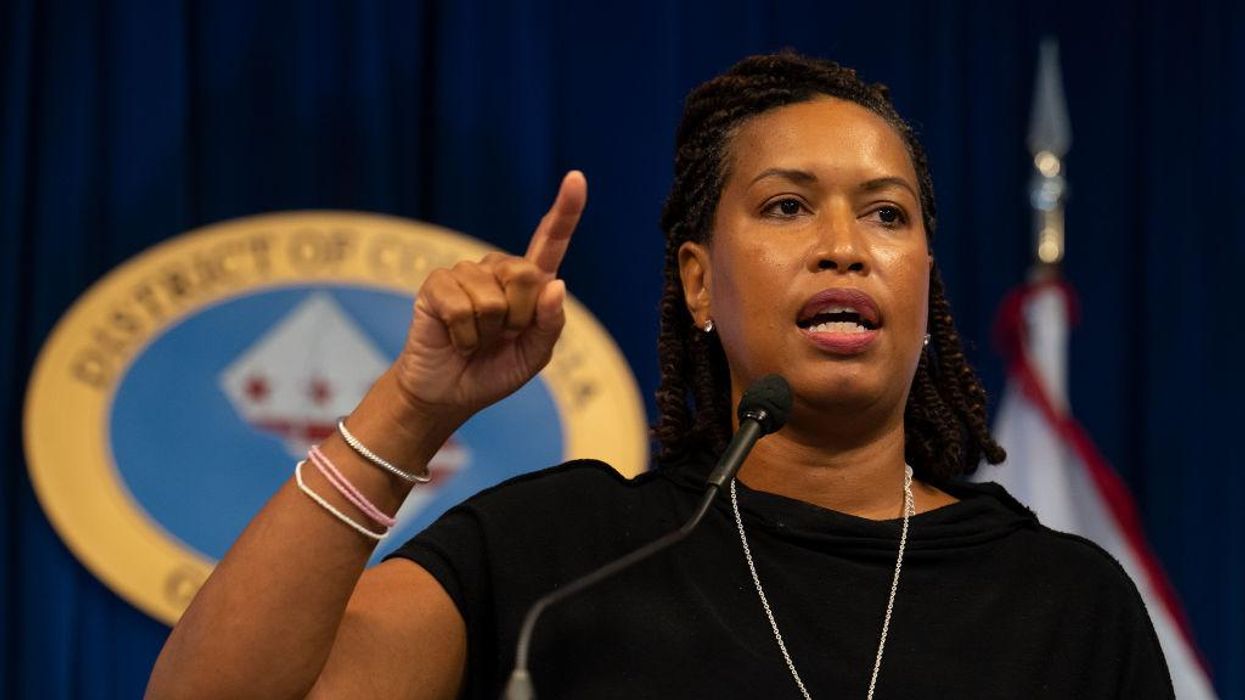
Photo by Craig Hudson for The Washington Post via Getty Images

The D.C. Council voted unanimously in favor of an altered version of the district's century-old criminal code on Tuesday, which will give criminals a break in a Democrat city beset by crime.
According to the DCist, the effort to overhaul D.C.'s criminal code's started in 2006. In 2021, after years of gradual but radical changes, lawmakers saw their way to a potential finished product. That product was put to a final vote this week.
Despite warnings from the D.C. police chief, the U.S. Department of Justice, and other high-level officials, the council voted to approve the 450-page Revised Criminal Code Act of 2021 (RCCA).
The RCCA contains provisions to reduce maximum sentences, eliminate nearly all mandatory minimum sentences, and expand the right to jury trials by persons accused of misdemeanor offenses (i.e., when bearing penalties exceeding 60 days in jail). The altered code would also enable inmates 25 and older to request early sentence review.
The bill will now go to the desk of Mayor Muriel Bowser (D), who previously indicated she might veto it pending the implementation of certain changes. The council could, however, override Bowser's veto.
In either case, it will also have to withstand a 60-day congressional review, largely in a Republican-led House.
In the event that the bill surmounts these hurdles, it will take effect in Oct. 2025.
WTTG reported that in late October, D.C. U.S. Attorney Matthew Graves wrote to the council about the bill, expressing concern that "some provisions, while well-intentioned, could undermine community safety and impede the administration of justice in our courts."
Among Graves' concerns were the maximum sentencing changes in the bill. For instance, the RCCA recommended changing the maximum penalty for armed burglary of a home from 60 years to 8 years. Graves suggested that 18 years might be a "consistent maximum."
Instead of the RCCA's proposed 4- or 8-year maximum penalty for an armed robbery instead of the original 45-year maximum, Graves suggested 12 years.
For armed carjacking, the RCCA swapped out a 40-year maximum for an 8- or 12-year maximum. Graves also thought this was unacceptable.
The council reportedly took a couple of Graves' concerns into consideration. While an earlier version of the bill called for an end to all mandatory minimums, they ended up making an exception for first-degree murder charges.
Council Chairman Phil Mendelson suggested, "Sentencing has little or no deterrent effect. ... Politicians often propose longer sentences to fight crime, and it's the wrong approach."
Ward 6 Councilman Charles Allen said that mandatory minimums "frequently just tie the hands of judges and juries, and they treat all victims as if they were the same."
WTTG reported that D.C. Police Chief Robert J. Contee III doesn't see eye to eye with Mendelson, Allen, and the bill's other supporters.
Contee voiced his opposition to the bill's reduction of many sentences, saying, "If we’re reducing a sentence from ten years down to five years, that makes the city less safe."
Bowser, also opposed to various provisions in the bill, said the RCCA's weak-on-crime provisions send "the wrong message to our residents when we are using every resource in our government to drive down crime."
According to the D.C. Metropolitan Police Department, there have been 183 murders so far in 2022, 1,862 robberies, 1,252 assaults with dangerous weapons, 3,134 motor vehicle thefts, and thousands of thefts.
The chance of becoming a victim of a violent crime in the District is 1 in 97. The city scores a 5 (with 100 being the highest) on Neighborhood Scout's crime index.
If the bill goes into effect, criminals may be spending less time in prison and more time on D.C.'s streets doing what they do best.
Bowser wrote to Mendelson on Monday, saying, "Some revisions ... will not only hamper public safety, but also disrupt the dispensation of justice for both the accused and the victimized. I urge the Council to pause, and bifurcate the provisions that have strong consensus, and move forward with those provisions only."
The mayor suggested that the overhaul would also handcuff the police department, preventing police from responding to "issues affecting residents' quality of life and safety."
For instance, the altered code would legalize "nuisance and unsanitary behaviors like public drinking" and defecating in public.
As for allowing access to jury trials for all misdemeanor offenses, Bowser suggested it is a nice idea but unfeasible: it "could quadruple the number of jury trials, significantly burdening our already strained courts."